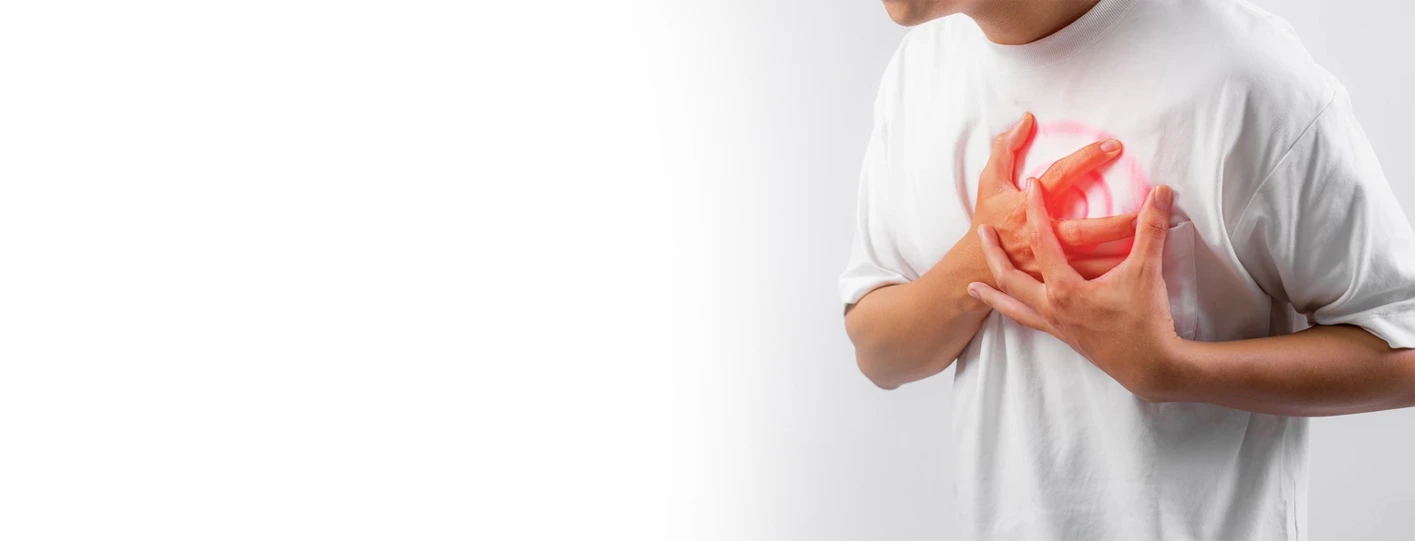



Yes. Cardiac arrest and sudden cardiac arrest are essentially the same. Both indicate the medical condition where the heart suddenly stops beating because of an electrical problem.
A heart attack happens due to blocked blood flow to the heart. While sudden cardiac arrest is due to the cardiac conduction system, immediate CPR and defibrillation are crucial for survival in cardiac arrest.
In India, SCA is a major health issue, according to recent statistics. Annually, about 5 to 6 lakh people (many of whom are under 50 years of age) unfortunately lose their lives due to sudden cardiac deaths.
Additionally, survival rates from SCA in India remain very low, often below 10%, because of insufficient immediate response measures like cardiopulmonary resuscitation (CPR) and the implementation of automated external defibrillators (AEDs).
The symptoms happen without warning; however, there can be early signs or symptoms beforehand that signal a risk.
If you notice someone struggling with these signs, provide them sudden cardiac arrest emergency response services: call the emergency number, perform CPR, and use an Automated External Defibrillator (if available).
The SCA emergency response involves immediate action, such as calling emergency services, starting CPR, and using an Automated external defibrillator (AED) if one is available.
Call an emergency number such as 108 or depending on your location. Give the exact location and describe the condition and symptoms of the person as exactly as possible.
Give CPR to the person by pushing down hard and fast in the center of the chest, at least 2 inches deep, 100-120 times per minute (think of the beat of a fast song). Allow the chest to rise between presses. And if you get tired, get help from another person every 2 minutes to continue CPR until help arrives.
It is a portable device that can shock the heart back to a normal rhythm. If it is available nearby, quickly turn it on and follow the instructions of the voice prompt.
Note: Every minute without CPR and AED reduces the chance of survival by about 10%. Hence, continue both until help arrives.
Here are the top 5 benefits of the emergency response:
Note: When bystander CPR is provided, an individual’s chance of surviving drops much more slowly, only about 3–4% for every minute until they get a shock from a defibrillator.
Every second is crucial during sudden cardiac arrest; hence, you can show the act of a responsible citizen by quickly calling for help, starting CPR, and using an AED. This can save a life and lower brain damage. And even if you’re not a medical expert, your SCA immediate response can offer an individual the best chance to survive and recover.
Q1: What is the cause of sudden Cardiac arrest ?
A: Sudden Cardiac arrest occurs when the heart’s electrical conduction system malfunctions. This causes the heart to stop pumping blood suddenly.
Here are some health conditions that can contribute to SCA:
Q2: Can you survive sudden Cardiac arrest ?
A: Yes, you can survive sudden Cardiac arrest if emergency responses such as CPR and defibrillation are provided immediately.
Q3: Can Stress cause Cardiac arrest ?
A: Stress alone is not a direct cause; however, intense physical or emotional stress can trigger sudden cardiac arrest in individuals having ongoing underlying heart issues.
Q4: What are sudden Cardiac arrest prevention tips ?
A: Here are some simple and heart healthy tips:
From Recent Advancements in Heart Care to Tips and Tricks to make your Heart Healthy Again, stay updated with reliable and informative blogs by our experts.